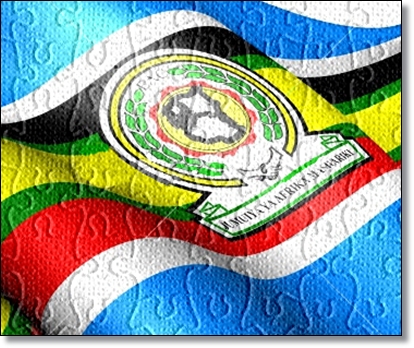Skewed Interests Blunt EAC Integration Pace

 |
Back home to Bujumbura, Dar es Salaam, Kampala, Kigali and Nairobi, these heads of state are often confronted by issues that call for difficult choices between their country’s nationality and the East African nationality. When it’s agreed that tariffs on certain goods and services be reduced or summarily scrapped in Arusha; Dar es Salaam and Kampala may find themselves backtracking on account of their business and industry sectors opposed to competition from their Kenyan counterparts. Often, the presidents cede to the interests of national lobbyists even if this blunts the grander EAC integration path.
Commerce, though the most significant, is but one of the areas where factors that push the five countries apart outdo factors that would see the pulling together of the region. Nationalistic sensibilities within the region clearly fuel the sense of competition as a zero-sum game rather than as a socio-economic asset. While cultural, linguistic and geographical homogeneity of the EAC has long been established, raw power politics remains a deleterious distraction.
Those who view the loose federation’s leaders as less inclined towards ceding their own powers to the common pool have many examples to point to. All the leaders, their henchmen and cheerleaders in tow, are much more desirous of consolidating their hold on power within their sovereign borders that giving up such trappings of power to the common good.
As such, points of confluence, among them the widespread use of Swahili and similarities in culture among for example the Maasai, Luo, Banyarwanda, Luhya and Pokot/Karamojong, have become hostage to the inward looking tendencies of the region’s state houses and presidential palaces. Shared resources (Lake Victoria stands out) have become the source of tensions, trashing the objectives undergirding integration instruments such as the common market protocol.
Instead of distinguishing national traits being considered along the lines of unity in diversity, they are fodder for damaging stereotypes that are mined at will to stock inter-national fears and frailties. Stereotypes, such as Kenyans being dodgy, Tanzanians being xenophobic, Rwandans and supposed edginess, and Burundians as warmongers to mention a few, are generalizations that cannot stand conscientious analysis. However, they are popular with the political class precisely because they are generalizations. Yet, positive generalizations such as Kenya’s entrepreneurial culture, Ugandans and their debonair mien, Tanzania as the land of the genteel, Rwandans and their beauty… could as well be promoted by the political class as the prerequisite to the economies of scale inherent in an EAC federation.
A quick trawl through official policies, strategies and action plans in the region confirms disharmony, with matters trade and commerce generally inward looking and running counter to the proposals and actions of the ministries of EAC. The EAC ministries in all the five countries were mooted to enhance coordination and increase visibility, supposedly because EAC affairs were hitherto in the backwaters of ministries of foreign affairs. Yet a look at establishment factors such as budget and staffing indicate that EAC ministries remain lowly and bear the hallmarks of the tokenism with which the EAC agenda is considered. While ministers and permanent secretaries throughout the region are ideally equals, it is patently clear that appointment to the EAC ministry more often than not speaks a lot about the pecking order of a politician or top bureaucrat vis a vis the ‘powers that be.’
Will EAC presidents – their advisors in tow – change tack and put more effort in the integration process? For reasons enumerated above, this is most unlikely. Yet, since integration of the region into a political federation remains the best shot at improved livelihoods in the region, means must be found to ratchet up the process.
The sooner the election of EAC legislative assembly members through the proxy and cronyism-prone political party approach is done away the better. Like MPs to national parliaments, EAC MPs should go directly to the people and sell their policies upon which they would be appraised as worth of their seats or otherwise. This way we can torpedo forces intent on stalling the integration for narrow national interests.
Certain sections of the business community – the East African Business Council is one – have played a role in pushing forward the integration. Civil society should join in and clamor for a referendum that would certainly put to rest the yearnings of EAC populaces.
By Bob Wekesa.
The author bobwekesa@gmail.com is a PhD candidate at Communication University of China.
